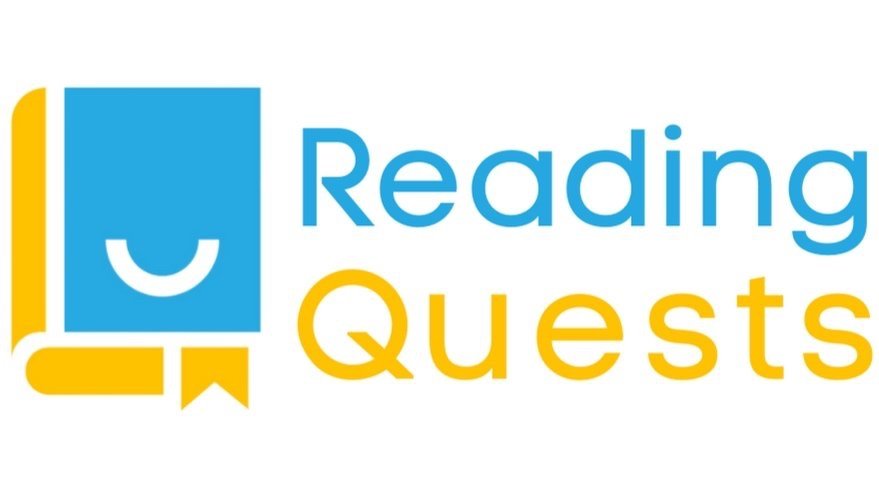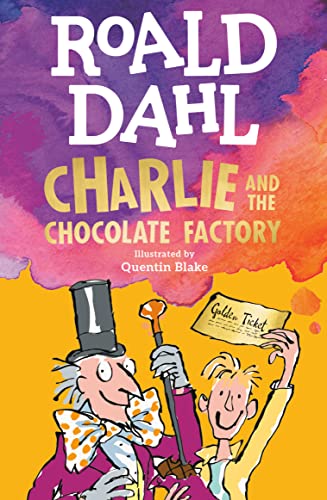Charlie and the Chocolate Factory: A Quick Book Summary
By Lily | Published 4 July 2022 | This post may contain affiliate links
Are you looking for a book that will inspire your child's love for reading? When it comes to classic children’s literature, few authors can compare to Roald Dahl. Dahl’s stories are filled with magic, mystery, and mischief – and his 1964 book Charlie and the Chocolate Factory is no exception.
The book follows the story of young Charlie Bucket, who lives in poverty with his parents and grandparents. When Charlie learns that Willy Wonka, the world-famous owner of a chocolate factory, is holding a contest to find five Golden Tickets hidden inside Wonka Bars, he sets out on a quest to find one.
Charlie and the Chocolate Factory is a timeless story that has charmed readers of all ages for generations, inspiring two film adaptations and numerous stage productions. If you’re looking for a book summary that everyone can enjoy, this is the one for you!
The Plot: What is the story about?
The story begins with the announcement that Mr. Wonka has hidden five golden tickets inside his famous chocolate bars. The lucky children who find the tickets will win a tour of the factory and a lifetime supply of chocolate. Charlie hopes to find a golden ticket, but his chances seem slim as he can only afford to buy one Wonka bar a year.
One by one, the tickets are found by children all over the world. The first ticket is found by a gluttonous boy named Augustus Gloop, the second ticket by a spoiled girl named Veruca Salt, the third ticket by dim-witted gum-chewer named Violet Beauregarde, and the fourth ticket by a toy-obsessed boy named Mike Teavee. Just when it seems that all the tickets have been found, Charlie finds a dollar bill on the sidewalk and uses it to buy his own Wonka bar. To his amazement, he finds the last golden ticket inside.
The next day, Charlie and the other four lucky children are taken on a tour of the factory. They explore rooms like the Chocolate Room, where everything is edible, and the Inventing Room, where Mr. Wonka creates new and exciting candy bars. They ride a chocolate river and see Oompa Loompas, the factory workers who sing and dance.
One by one, the children are eliminated from the tour due to their own misbehavior. Augustus falls into the chocolate river, Violet turns into a giant blueberry, Mike gets shrunk down to a tiny size, and Veruca is thrown down the garbage chute. In the end, only Charlie is left. Mr. Wonka reveals that he was looking for a special child to be his successor and offers Charlie the grand prize - ownership of the chocolate factory. Charlie accepts, and Mr. Wonka takes him and his family on a ride in the Great Glass Elevator.
RELATED: Visit Reading Quests for free book study printables for Charlie and the Chocolate Factory.
Who are the Main Characters?
The story features an unforgettable cast of characters including the eccentric and reclusive owner of the chocolate factory, Mr. Willy Wonka. Each of the five lucky children who win golden tickets to tour the factory has their own unique personality and traits.
Mike Teavee is a toy pistol-toting gangster-in-training who is obsessed with TV
Violet Beauregarde a gum-chewing champion has the fastest jaws in the world but no manners
Augustus Gloop is an enormously fat boy with an insatiable appetite, and
Veruca Salt is a spoiled-rotten brat who has always gotten what she wants.
Protagonist Charlie Bucket comes from a poor family and has never had a Wonka bar before. He is an only child who lives with his parents and four grandparents in a tiny wooden house. Despite their poverty, the Bucket family is full of love and kindness. Charlie's beloved grandpa Joe is particularly supportive and encourages him to dream big.
Themes: What we can learn from this book?
Charlie and the Chocolate Factory is a story that celebrates the virtues of kindness and humility. Despite his poverty, Charlie is a good-hearted and honest boy. He is respectful to his parents and grandparents and appreciates the simple things in life.
In contrast, the other children who win golden tickets are spoiled and entitled, and their bad behavior leads to their downfall. The story also touches on themes of greed and the dangers of excess.
Key Story Elements: Why is the book so special?
The Bucket Family
Charlie Bucket is a young boy who lives with his loving and supportive parents and grandparents in a tiny wooden house. The family is very poor and can barely afford to buy food, let alone candy. Charlie's father works in a toothpaste factory, but they barely make enough money to survive. They are so poor that Charlie's Grandpa Joe, Grandma Josephine, Grandpa George and Grandma Georgina all share the only bed.
Despite their difficult circumstances, Charlie is a happy and contented child who loves his family and dreams of a better life. They are also resigned to their poverty and do not have high expectations for their future. Nevertheless, they are a close-knit family who support each other through difficult times.
The Golden Tickets
Willy Wonka, the owner of the local chocolate factory, announces he has hidden five golden tickets in his Wonka chocolate bars. The golden tickets are the catalyst that sets the adventure in motion and becomes a global phenomenon with everyone desperate to find one.
The lucky children who find these tickets will win a tour of the factory and a lifetime supply of chocolate. Charlie is overjoyed but knows that his chances of finding a golden ticket are slim, as his family can only afford to buy one chocolate bar a year on his birthday. Alas, he finds the final golden ticket.
The Other Children
The other children who find golden tickets are all flawed and selfish in their own ways which is revealed as the tour progresses. They are all caricatures of modern vices and excesses, and their fates in the factory reflect their flaws. Although they are all given a chance to redeem themselves, they ultimately fail and are eliminated from the tour.
Augustus is gluttonous and greedy; he falls into the chocolate river and is sucked up a pipe to the fudge room. Veruca is entitled and spoiled; she is thrown down the garbage chute by the squirrels in the nut room. Violet is rude and impulsive; she turns into a giant blueberry after chewing a piece of experimental gum. Finally, Mike is obsessed with TV and technology; he is shrunk down to the size of a TV screen and sent through the airwaves.
In the end, only Charlie remains, and he is rewarded for his honesty and good heart. Willy Wonka reveals that he has hidden a special prize in one of his Wonka chocolate bars, and Charlie's dollar bill is the winner. He is given the factory as his prize and takes Charlie's family on a tour of the factory in the great glass elevator.
The Chocolate Factory
Willy Wonka's enormous chocolate factory is a magical and fantastical place that is full of wonders and surprises. From the chocolate waterfall to the inventing room and the candy bars that never run out, everything in the factory is designed to delight and amaze. The factory is also home to a cast of colorful characters, including the Oompa Loompas, who help Wonka run his operation. Wonka's factory is a place of imagination and creativity, where anything is possible.
The Great Glass Elevator
The great glass elevator is the final destination of the tour, and it is also the means by which Charlie and his whole family escape the factory. The elevator is a magical device that can travel through space and time, and it is controlled by Mr. Wonka. The ride in the elevator is a thrilling and surreal experience that takes Charlie and his family to the edge of the earth's atmosphere and beyond before returning to Earth and landing safely back in their tiny wooden house. The elevator is also a symbol of Charlie's triumph over adversity and his ultimate reward for his honesty and good heart.
RELATED: Check out these fun book-themed activities for Charlie and the Chocolate Factory to continue the reading fun!
The Movie Adaptation
Charlie and the Chocolate Factory has been adapted into two major film adaptations, one in 1971 and another in 2005. Gene Wilder stars as Mr. Wonka in the 1971 version and Johnny Depp in the 2005 version. While both movies are based on the same source material, they do have some differences which may affect individual viewers' perceptions of the story.
However, the overall message of the story remains intact in all versions. The story's themes of honesty, kindness, and perseverance are still present in all adaptations, and the importance of these values is emphasized throughout.
Conclusion
Charlie and the Chocolate Factory is a timeless classic that has captured the hearts and imaginations of generations of readers. The story's themes of honesty, kindness, and perseverance are as relevant today as they were when the book was first published. The characters are memorable and entertaining, and the world of Willy Wonka's chocolate factory is a place of magic and wonder.
Whether you are a young parent looking to introduce your children to the joys of reading or an adult looking to relive a childhood favorite, "Charlie and the Chocolate Factory" is a book that is sure to delight and inspire.
RELATED: If your child had fun with this book, be sure to check out Matilda and James and the Giant Peach.
About Roald Dahl
Roald Dahl was a British author who wrote many popular children's books, including "James and the Giant Peach", "Matilda", and "The BFG". He was born in Wales in 1916 and served in the Royal Air Force during World War II before becoming a writer.
His books are known for their whimsical, magical, and sometimes dark characters and settings, as well as their messages about the importance of kindness, honesty, and imagination. Be sure to visit more stories in Dahl’s collection of children’s stories!
Some of my Favorite Reviews of this Book
“Charlie and the Chocolate Factory is a fantastic and engaging story that will capture the hearts of readers of all ages!” - New York Book Review
“Roald Dahl’s genius shines through in this classic tale! A must-read for all ages!" -Amazon Customer
“Charlie and the Chocolate Factory is a fun and entertaining story that offers up moral lessons. A truly timeless children’s classic.” - GoodReads Reviewer


